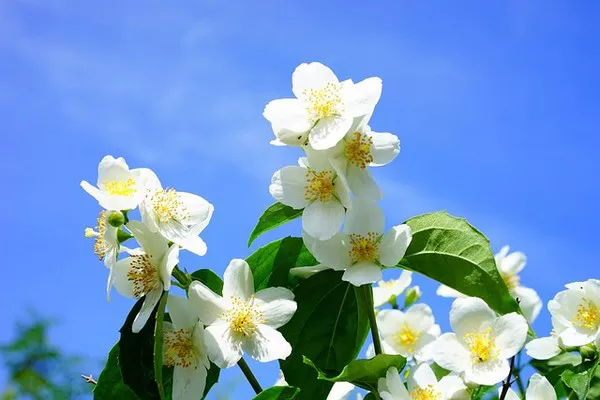In the vast tapestry of botanical wonders, few flowers captivate the senses and hold cultural significance as profoundly as the jasmine flower. Known for its enchanting fragrance and delicate appearance, jasmine has woven itself into the fabric of various cultures across the globe. This article explores the unique qualities that make the jasmine flower special, from its aromatic allure to its rich symbolism.
The Botanical Marvel: Jasminum
At the heart of the allure of the jasmine flower lies its botanical marvel. Belonging to the genus Jasminum, these flowering plants are a part of the olive family (Oleaceae). Native to tropical and subtropical regions, jasmine species are characterized by their evergreen nature and waxy, star-shaped blossoms. Among the most popular species are Jasminum officinale (common jasmine), Jasminum sambac (Arabian jasmine), and Jasminum grandiflorum (Spanish jasmine).
A Symphony of Fragrance: The Scent of Jasmine
One cannot speak of jasmine without acknowledging its intoxicating fragrance. The scent of jasmine is both ethereal and exotic, making it a coveted addition to perfumes, essential oils, and teas. The flowers release their fragrance most prominently in the evening, creating a sensory experience that is both enchanting and calming.
Scientists attribute the captivating scent of jasmine to compounds such as benzyl acetate, benzyl alcohol, and linalool. These compounds contribute to the sweet, floral aroma that has made jasmine an essential ingredient in the world of perfumery. Beyond its commercial use, the fragrance of jasmine holds cultural and spiritual significance in various traditions.
Symbolism and Cultural Significance
Jasmine in Literature and Mythology
Jasmine’s symbolic significance can be traced back through the annals of literature and mythology. In many cultures, the flower is often associated with love, beauty, and purity. In Greek mythology, jasmine is linked to the goddess Aphrodite, representing love and sensuality. In the language of flowers, known as floriography, jasmine often signifies eternal love and sensuality.
Cultural Importance in Asia
The jasmine flower holds special cultural significance in several Asian countries. In India, jasmine, known as “Mallika” or “Mogra,” is revered for its use in religious ceremonies, weddings, and festivals. The flowers are intricately woven into garlands and used to adorn deities, symbolizing purity and auspiciousness.
In Southeast Asia, particularly in Thailand and Indonesia, jasmine is the national flower and is woven into cultural practices and ceremonies. The fragrance of jasmine is believed to bring good luck and positive energy, making it a staple in religious rituals and traditional celebrations.
Jasmine in Chinese Culture
In Chinese culture, jasmine is associated with femininity and beauty. The flower is often featured in traditional Chinese paintings and poetry as a symbol of elegance and grace. Additionally, jasmine tea, made by infusing green tea leaves with jasmine blossoms, holds a special place in Chinese tea culture. The tea is not only appreciated for its taste but also for the calming and soothing properties associated with jasmine.
Therapeutic Uses: Beyond Aesthetics
Beyond its aesthetic appeal and cultural symbolism, jasmine has been recognized for its therapeutic properties. In traditional medicine, jasmine has been used to alleviate stress, anxiety, and insomnia. The essential oil extracted from jasmine flowers is known for its calming effects on the nervous system, making it a popular choice in aromatherapy.
Antioxidant and Anti-inflammatory Properties
Scientific studies have explored the antioxidant and anti-inflammatory properties of jasmine compounds. The presence of antioxidants, such as catechins, in jasmine tea has been linked to potential health benefits, including improved heart health and reduced oxidative stress.
Aromatherapy and Emotional Well-being
The use of jasmine essential oil in aromatherapy has gained popularity for its potential to uplift mood and alleviate symptoms of depression. The aroma of jasmine is believed to have a positive impact on the brain’s limbic system, which plays a role in emotions and memories.
Conclusion
In conclusion, the jasmine flower stands as a testament to the timeless allure of nature’s creations. Its enchanting fragrance, cultural significance, and therapeutic properties make it a truly special botanical specimen. From the bustling markets of Southeast Asia to the serene gardens of Europe, jasmine continues to weave its aromatic magic, leaving an indelible mark on the senses and the human experience. As we delve deeper into the mysteries of the natural world, the jasmine flower remains a symbol of beauty, love, and the delicate balance between science and culture.


